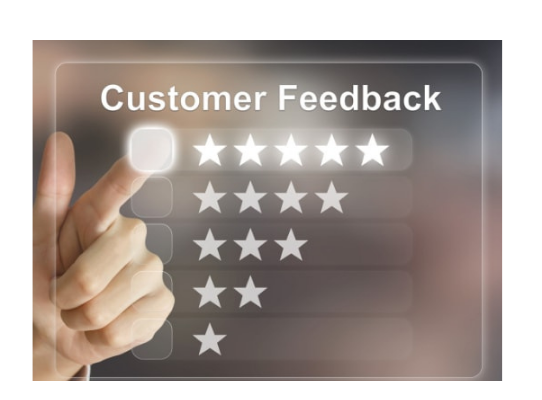Knowing your competitors as a business owner, salesperson, product developer, or any other business person is not enough. You need to go the extra mile and extensively monitor your competition. This entails gathering as many details as possible about who you’re up against.
But why is this necessary? Of course, the competition affects businesses. Whether it’s coming from industry’s powerhouses or new entrants who might bring in new ideas challenging your already established brand, you need to be wary. It’ll impact how you operate your business – the marketing, selling, branding, everything. In fact, it’ll determine whether or not you succeed.
Pay Attention to Your Competition
It’s crucial to regularly monitor your competition if you’re to stay ahead of your business rivals. But where do you begin?
There are probably thousands of businesses dealing with the same products or services like yours. Therefore, the first step in competition tracking is to establish the competitors worth monitoring.
The two types of competitors you need to pay attention to are:
Direct Competitors
Direct competition comes from businesses offering products or services that are similar to what your firm provides. They are the Pepsi to your Coca-Cola.
Prospective customers analyze you based on how your price, availability, and product compare with your competitors.
Since direct competitors are the imminent threat, they should be your top priority when tracking your competition. The only way to gain an edge over them is to make sure your products offer something they’re yet to.
Indirect Competitors
Indirect competition comes from companies that offer different products and services from yours but to the same customer base.
Though they’re not as much of a threat as direct competitors, it’s good to keep track of what they’re up to. They may develop new ideas that can help you and your direct competitors transform your businesses into a better thing.
What You Can Learn From Your Competitors
You’re probably thinking, “Why monitor my competitors?” Well, you get to learn a few things that you can use to improve your business.
Keeping track of your competitors helps you to:
- Interpret the collected data, analyze it, and come to conclusions, helping you avoid crises.
- Improve on your managers’ way of doing things. To create new strategies, they’ll not just do it from nothing, but from complex data, improving how you deal with industry matters.
- Improve your sales and also ROI. You’re continuously analyzing data from competitors. This enables you to adapt to industry changes continually and improve your performance.
- Boost the overall performance of your business. By carefully monitoring how your rivals are trending, you’re able to put measures in place that ensure you strengthen your industry and market position.
How to Find Your Competitors Online
Do you know who your online competitors are? These are the websites competing for visibility in the search engines with you.
Your key phrases answer questions like how to find competitors to a website and how to find your competitors.
Once you’ve established these phrases, you can identify who your competitors are in several ways, including the following free tools to find competitors:
#1 Googling Your Key Phrases
The best way to establish the competition that ranks at the top online is to use Google. Simply google the key phrase, and websites ranking the best will appear. Then, make a list of the domain names and firms ranking at the top with your keywords.
Remember, these competitors will include those whose ranking is natural and those who find their way to the top through online advertising.
#2 Try Using the “Related:” Search Operator
Google has the related: search operator that you can use to find top sites that google ranks with yours. Since it identifies them as similar to yours, these could be your potential competitors.
#3 Check for Listings in Directories
Another way to identify your competitors online is by using directories. Of course, this will be easy if you’ve already submitted your business to your local area directories. Then, you’ll only need to check who else is offering the same products or services in your area or niche.
#4 Try SEMRush
SEMRush is one of the website competitor analysis tools that you can use to research your competition online. After subscribing to the service, you’ll have access to traffic data and keyword ranking. Questions like “How to find your competitors customers,” or in other words, “Who are your primary competitors?” are now easily answered using this tool.
It’s one of the best company competitor finders there is. Mind you, SEMRush also offers a free version, albeit with limited data.
To identify your company’s top five competing websites, type your domain on the competitor’s analysis dashboard. Then, move down the page to your ‘Main Organic Competitors.’ The list includes the websites that SEMRush considers to be your competitors.
Free Competitor Analysis Tools
Wondering how to find competitors of a company free? Well, marketers prioritize keyword research. And the good news is there are free online competitor analysis tools available.
With such tools and a clear strategy, you can easily identify the keywords your competitors are using. Some of the top free tools to find competitors include:
SEMRush
Most companies trust SEMRush as the best competitor analysis tool. With this tool, you can check the keywords used by your competitors, backlinks, and the audit of SEO in your blogs.
SEMRush helps you keep track of your website’s performance and monitor your social media work.
SpyFu
This tool helps you spy on your competitors’ activity, just as the name suggests.
But what is competitor activity? It’s the details of what’s going on with your competitor’s website. For example, you can download the highest-ranking keywords your competitors are using. You can get all your competitor details, helping you to be a step ahead of them.
Keyword Competitor
Keyword competitor is an online competitor analysis tool for establishing the keyword your competitor is using.
These keywords can help you improve your long-tail keywords’ search performance.
Other Tools
The list of free online competitor analysis tools you can use to keep track of your competitors is endless. Other useful tools include:
- Ubersuggest
- Alexa
- SimilarWeb
- Wappalyzer
- QuickSprout
- WooRank
- BuiltWith
All this monitoring aims at helping you identify information that can be helpful to your company, giving it a competitive advantage. Some of the benefits of the monitoring, especially with these online tools, are:
- You can track your ranking progress
- You can deeply find out who your competitors are
- Compare search traffic and share of voice
- Identify keyword gaps
- Check how competing techs are performing
Ultimately, you get to know the best course of action to take to ensure you don’t lag behind your competitors but stay ahead.
Media monitoring serves you best because it delivers exemplary results. With the right competitor analysis tool, collecting critical competitor data to help you strategize is easier.
Use your sales team, marketing teams, business development, product, and leadership teams to keep in touch with what’s happening with both direct and indirect competitors. It’s the only way to survive and succeed in this ever-evolving, highly competitive business world.













